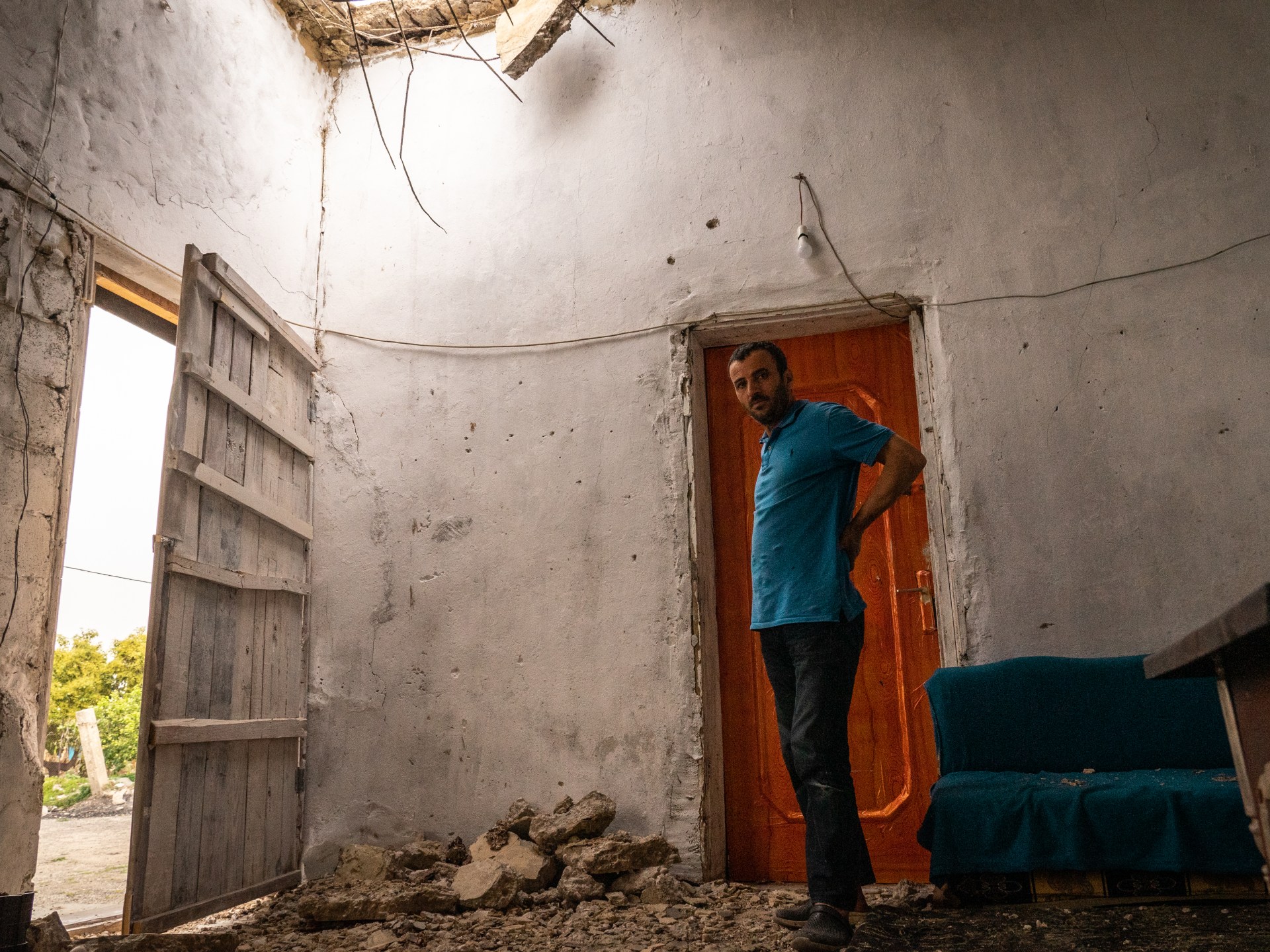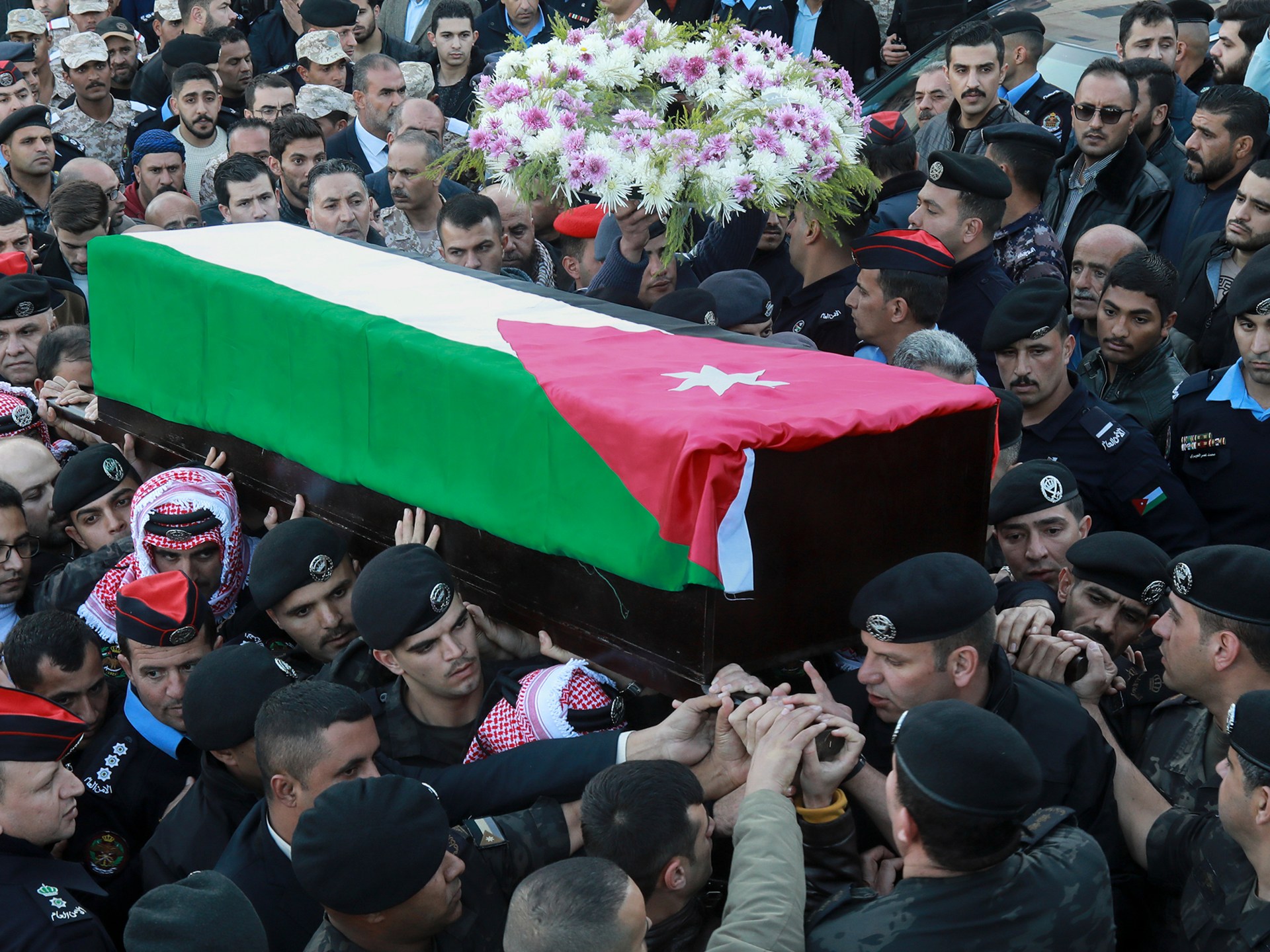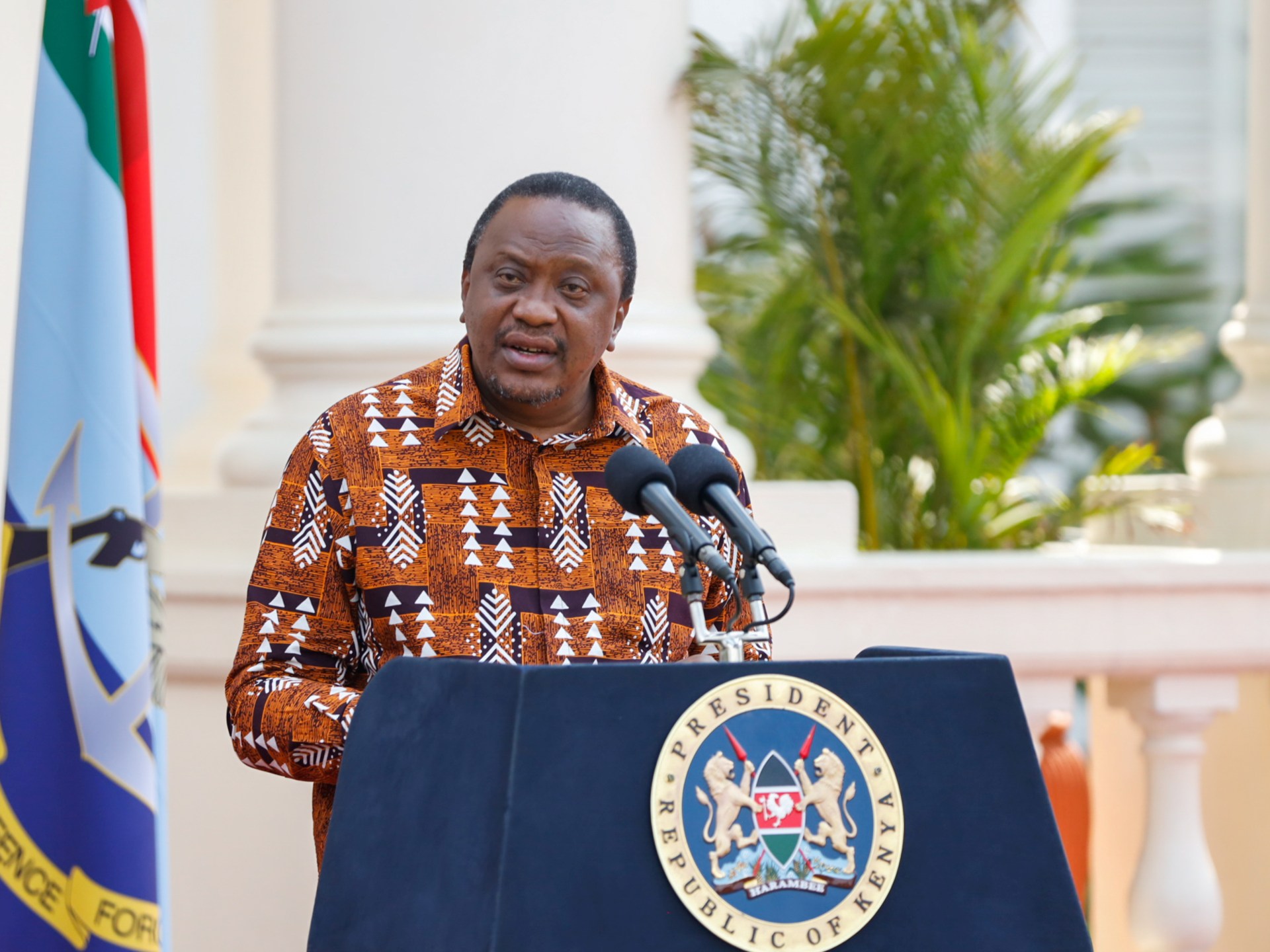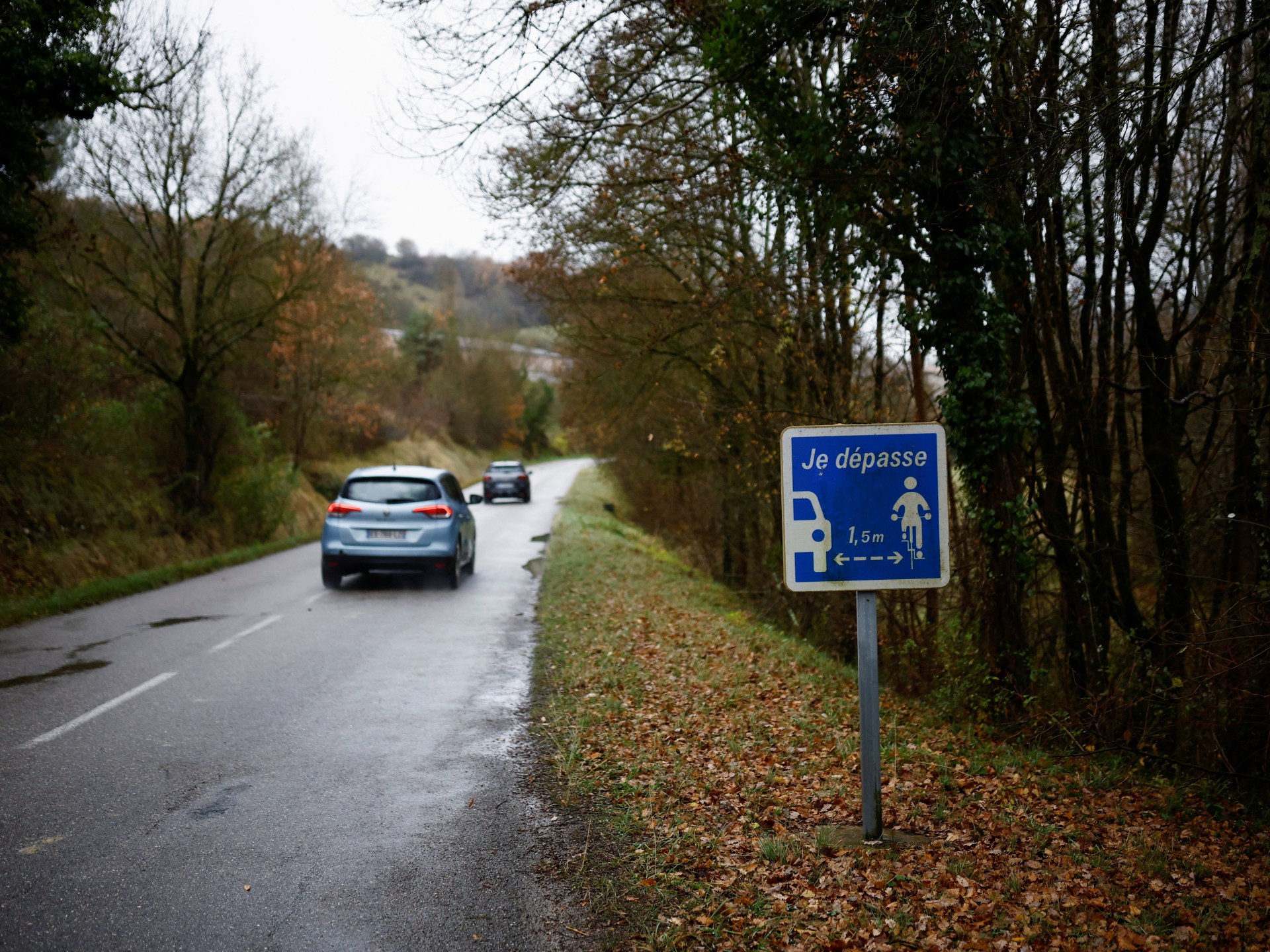‘Saved by a miracle’: Israel rocket attack on Lebanon spurs fears | Israel-Palestine conflict News
Qlaileh, Lebanon – Abdelkhaliq Abdelsattar and his family, Syrians from Idlib, were awakened suddenly on Friday by the sound of a bomb dropped by an Israeli warplane in the southern Lebanese district of Tyre.
After a second explosion sounded closer to their home, Abdelsattar – who knew the sounds of war well – ran out of the house with his wife and seven children seconds before a third projectile exploded, sending what he described as a rock the size of a cow through the roof of their bedroom.
“My children are still scared; they haven’t slept; they had a nervous breakdown. They’ve been in the Syrian war but they’ve never been in a situation like this,” Abdelsattar tells Al Jazeera, sitting in his damaged home, where debris covers the family’s beds and carpets.
Where the windows once were, sheets of blue plastic flutter in the breeze and the hole in the ceiling exposes iron rebar that droops towards the floor as light and wind pour in.
“We were saved by a miracle”, he says.
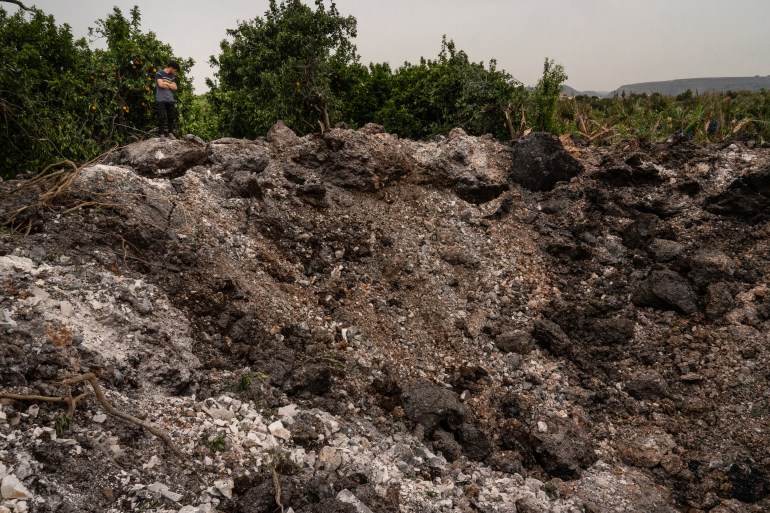
Hamas, Hezbollah and Israel
Israel’s Friday bombing campaign came after 34 rockets were fired towards its territory on Thursday from the region just a few kilometres from the Lebanese border, in apparent response to the Israeli attack on the Al-Aqsa Mosque compound in Jerusalem.
The Israeli army blamed the Palestinian armed group Hamas, which governs the Gaza Strip and has a faction in Lebanon, and said it attacked targets associated with the group.
Hamas did not claim responsibility for the attack, but in a statement, the group said it held Israel fully responsible for the escalation in Lebanon and Gaza, “and for the consequences that will bring onto the region”.
The Lebanese government has said it was working to de-escalate tensions through the Iran-backed Shia armed movement Hezbollah – which also did not claim responsibility for the attack, despite its control over security in southern Lebanon.
Aligned with Hezbollah through shared enmity towards Israel, Hamas’s presence and power in Lebanon have grown in recent years, and the group’s leadership meet often.
On Saturday, Hezbollah leader Hassan Nasrallah met the head of Hamas’s political bureau, Ismail Haniyeh, and other Hamas officials.
Nasrallah had previously said that any Israeli attack on the Al-Aqsa Mosque would “inflame the entire region”, a position that was repeated by Hezbollah officials after the past week’s events.
On Friday, Lebanese Foreign Minister Abdallah Bou Habib said that “Palestinian militias” were behind the rocket launches, “not Hezbollah at all”.
Bou Habib also said the government was not able to confirm if Hezbollah approved the attacks but, as it is well known in the area, “nothing happens in southern Lebanon without Hezbollah’s knowledge”, Heiko Wimmen, project director for Iraq, Syria and Lebanon for the Crisis Group, told Al Jazeera.
On Friday, Israeli officials announced the attacks on Gaza and Lebanon had ended “as long as there is no renewed rocket fire”.
Reports in the Israeli media said Israeli forces decided to only attack Hamas targets in Lebanon, recognising that a “wider response against Hezbollah would likely result in the organisation launching precision missiles towards Israeli cities which could escalate into a war”, according to Israeli journalist Barak Ravid.
Hezbollah spoke on similar lines, saying that after this week’s violence, “the deterrent power balance remains in place”, the group’s Deputy Secretary-General Naim Qassem told the Al-Manar newspaper.
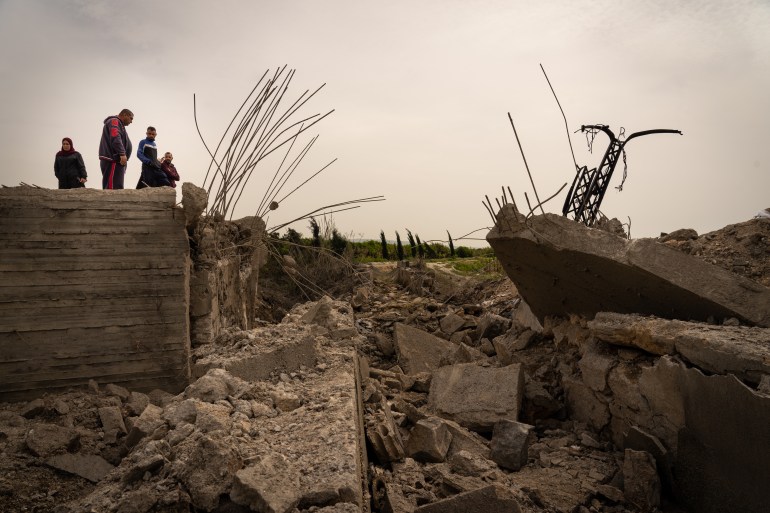
No significant risk of escalation
“Nobody wants an all-out confrontation, both Israelis and Hezbollah know that in a real war, nobody is going to win anything and the losses are going to be very serious”, Wimmen said.
According to Wimmen, throughout the years since the end of the 2006 war, violence across the Israeli-Lebanese border has largely been conducted in a quid-pro-quo manner, and there is no significant risk of further escalation regarding the latest incident.
But Wimmen also argued that the intensity of Thursday’s attack on Israel, the biggest since the end of the war, was not something to ignore, as the increase in the number of rockets fired increased the chances of casualties in Israel, inevitably leading to a tougher response.
“Whoever is shooting these missiles is definitely taking a much bigger risk than in the past,” Wimmen said. “You just need one of those rockets to hit a supermarket with people inside [in Israel] and then all hell breaks loose. That’s all it takes.”
Majed and Nawal, a retired couple born in Qlaileh who call themselves “products of war”, having lived through it almost all their lives, know this well: “When you’re Lebanese, you have to learn to expect the unexpected”, Majed says.
“You can’t think about what might happen because anything can happen,” he tells Al Jazeera.
The couple are among the locals who came to see the site of the second bomb, which destroyed a bridge and an irrigation project in the middle of an orange farm. The sound of birds chirping has replaced the booming sounds of bombs exploding.
Although similar exchanges have happened since the end of the war launched by Israel on Lebanon in 2006, this week’s incident was the most significant since the unofficial end of the conflict 17 years ago, awakening memories of troubled times in the minds of residents.
“You hear the plane first – that whooshing sound that we are so used to. Then boom!” Nawal tells Al Jazeera.
They haven’t been able to sleep since Thursday’s attack; a lot of their family and friends left for Beirut as soon as they heard rockets. The couple, who survived the Lebanese Civil War and are visiting Lebanon for Ramadan, were also here when the 2006 war broke out.
“When you come to Lebanon, this is the first thing you worry about as there is no safety, there is no stability. You are always on edge, you are always expecting something like that to happen,” says Nawal.
Hezbollah’s presence in their hometown does not worry them but both Majed and Nawal say Hamas’s activities in Lebanon are harmful.
“We are paying the price. I feel like we are pawns in a chess game, we don’t know what’s happening. We just live with it,” she says.
As for the Lebanese government, it has said little.
Since the attacks, the army has found several rocket launchers and projectiles in the area, as part of its joint investigations into the incident with the United Nations peacekeeping mission in South Lebanon (UNIFIL).
But besides that, the army’s hands are mostly tied.
As a result of a past agreement with the Palestinians, the Lebanese military generally does not enter Palestinian refugee camps in the country.
Bou Habib himself has even admitted that “it is easy” for Palestinian groups to operate in southern Lebanon.
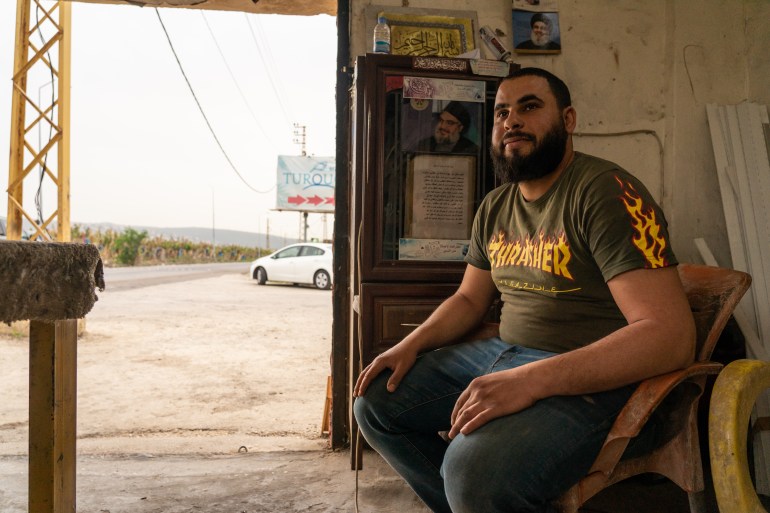
Hezbollah territory
And yet, the reality is that Hezbollah keeps a tight hold on security in southern Lebanon, and multiple rocket launches conducted without their knowledge seems unlikely.
That has left some Lebanese fearful of the group dragging the rest of the country into a conflict.
Wimmen said, “The constant complaint of anyone who is critical of Hezbollah is that they have hijacked and monopolised the decision about peace and war. Like it, don’t like it: that’s the reality.”
The main road leading to Tyre is lined with yellow Hezbollah flags and giant posters of Nasrallah. The same portraits hang on the walls of Ghassan al-Tourak’s aluminium workshop.
The 30-year-old Lebanese-born Palestinian lives in the Rashidyeh camp, near where the first Israeli bomb hit on Friday. Al-Tourak’s windows were shattered, but he tells Al Jazeera he feels safe.
“As long as Hassan Nasrallah is here we are not afraid,” he says, smiling and pointing at the pictures on the wall.
Although life has seemingly returned to normal in Qlaileh, people like Abdelsattar are still feeling the shockwaves.
Walking through the orange grove behind his house, Abdelsattar leads the way to the site of the bomb that nearly killed him and his family.
Fifty-five hectares (136 acres) of the grove have been damaged and squashed oranges litter the floor, filling the air with sweetness. Hundreds of dead bees from the hives Abdelsattar keeps are on the ground, some of them still twitching. Abdelsattar points out that the rocket even unearthed dozens of potatoes.
Closer to the blast site, the oranges and greens are replaced by upturned earth, shattered structures and dust, as Abdelsattar and his son stand by the deep hole.
Still, the Syrian farmer says he will stay here as he cannot afford to fix their damaged home or move somewhere else.
“In the war in Syria, I ran away. I didn’t die there and I didn’t die here. God has given me a new life”, he says.

